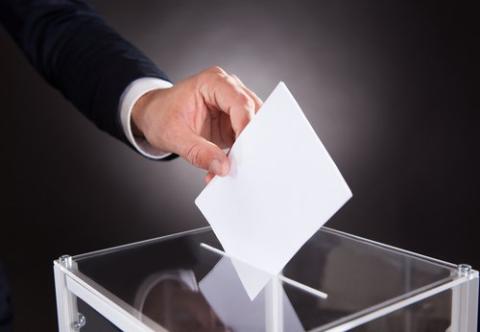Editor's Note: This piece published first in the Bangor Daily News. It was written by Maine for Open Elections President Joe H Pickering and Open Primaries Vice President Jeremy Gruber. It has been republished on IVN with permission from Bangor Daily News.
Next year, Maine will hold its first open primary election. Every Maine voter — including the 32 percent registered as unaffiliated — will be able to vote. It’s a critical step forward.
But we also have to ensure that the vote of every citizen is meaningful. That process moved forward with the adoption of ranked-choice voting and is continuing with a drive to diminish the power of money in politics. We believe it now demands a move from partisan to nonpartisan primaries.
Maine voters have always been independent. While most states have seen a dramatic increase in independent voters over the last 10 years, they have historically been the largest group of voters in Maine going back decades. Twenty years ago, they were 38 percent of all voters. As recently as 2017, those numbers held steady. During the Trump era, those numbers took a slight dip as many independents in Maine joined a political party likely in order to participate in the state’s closed primaries and impact the makeup of Congress.
Now that independents can vote in Maine’s primaries, the political structures that forced them to join a party have diminished and their numbers will likely rise. The state’s adoption of automatic voter registration should accelerate that growth. Research has shown that states with automatic voter registration have seen an explosion of new voters registered as independents.
These voters and many of Maine’s independent-minded party voters still remain disadvantaged by a primary election system that is simply not working for them.
Today, primary elections are the most important elections in Maine. In the 2022 general election for state legislative races, more than 40 percent of candidates either ran unopposed outright or with nominal competition that they defeated by a margin of 30 percent or greater. By our calculations, only 12 percent of the races for the state Senate and House were actually competitive.
It’s Maine’s primaries where so much of the competition and agenda setting takes place and where voters are still forced to vote in party primaries that silo them and prevent them from picking the best candidate. They also tend to favor candidates that cater to the party base. It’s why politicians are forced to move left or right of their own personal convictions to win in them, only to be boxed in as they have to compete in the general election. It’s one of the sources of political dysfunction today.
That’s why many states are exploring a move to nonpartisan primaries. California, Washington, Nebraska and Alaska have already enacted them statewide and Nevada voters are poised to vote on a measure next year. In the nonpartisan system, there are no more Democratic and Republican primaries. There is a single primary where all voters and all candidates participate on equal footing. You’re already familiar with this system, it’s how 85 percent of municipal elections around the country — including in Maine — work.
A hundred years ago, in Maine and every other state, there were no primary elections. Party leaders worked hand in hand with special interests to select candidates. Primaries were created to ensure politicians were accountable to the voters. Ironically, both political parties now refer to primaries as “theirs.” But primaries have always been for the people.
Primaries are taxpayer funded — to the tune of more than $1 million every election cycle. They are administered at every stage by the state of Maine. These are public, not private elections. So why are we allowing private organizations that fewer and fewer Mainers even count themselves members of to determine how these elections are run?
State Sen. Joe Baldacci of Bangor doesn’t think we should, and he introduced legislation for nonpartisan primaries this past session. He’s challenging his own party to start a conversation. So far, his colleagues have failed to join him. That has to change.
As other states continue to reform their primary election systems, Maine must keep pace. Maine’s motto is “I Lead.” Let’s start the conversation on how Maine can lead on primary reform.
